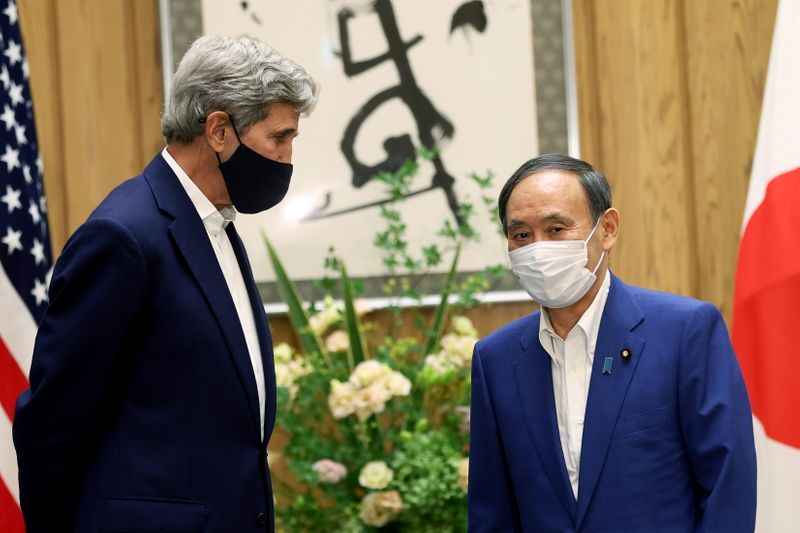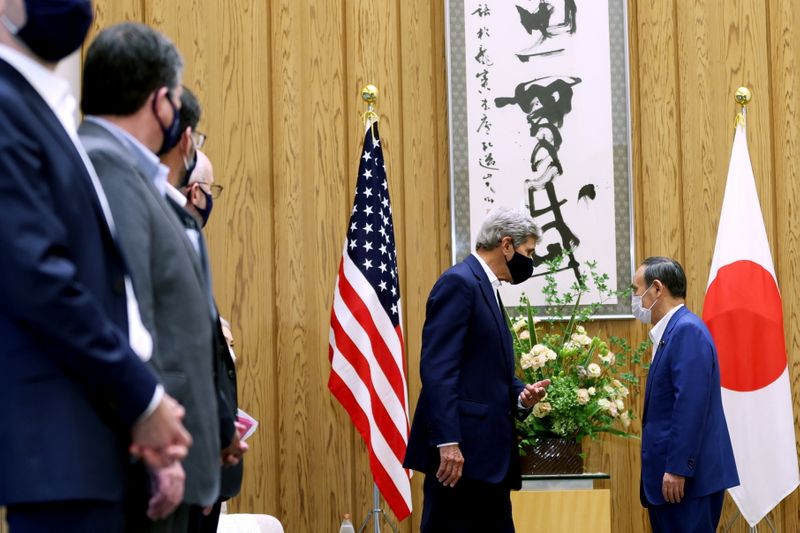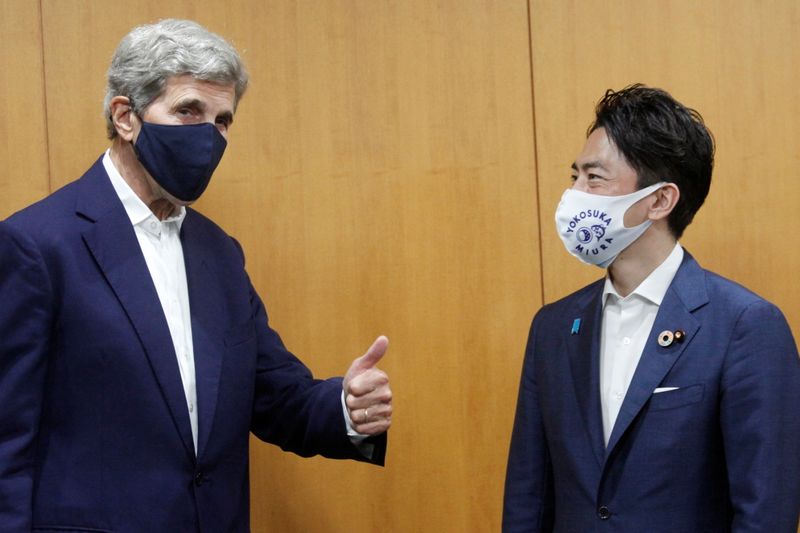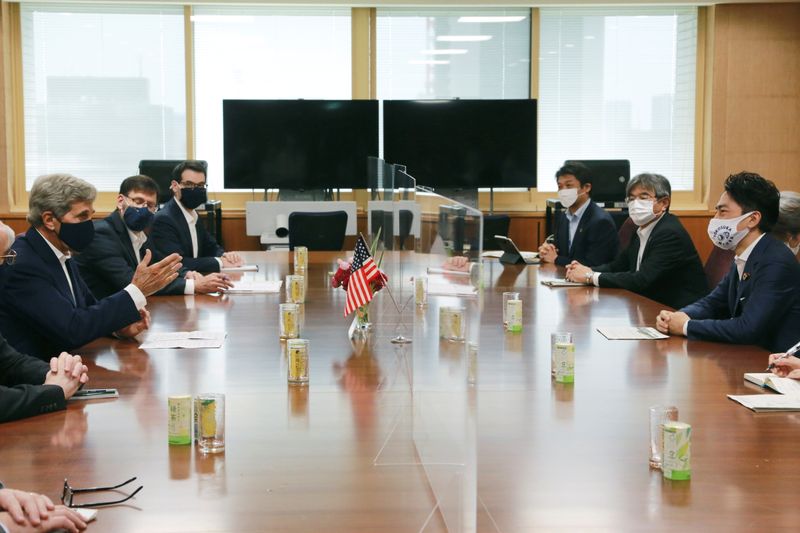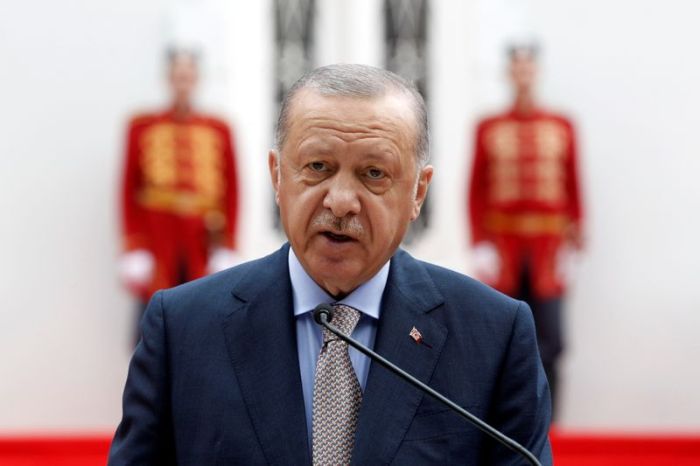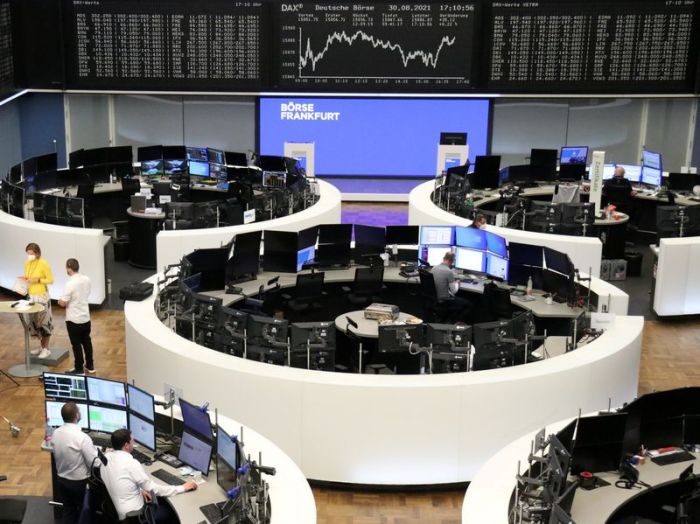TOKYO (Reuters) -U.S. climate envoy John Kerry held talks in Tokyo on Tuesday with Japanese Prime Minister Yoshihide Suga and other officials on cooperation on carbon emissions and cutting support for fossil fuels before heading to China for more discussions.
The former secretary of state has led U.S. efforts to convince the global community of the threat of climate change and urge the acceleration of efforts to curb carbon emissions. The U.S. push comes in advance of the U.N. COP26 climate conference, which will be held in Scotland in November.
Kerry first met with Environment Minister Shinjiro Koizumi and in public comments before the closed-door portion of their meeting he briefly discussed Japan’s more strict emissions targets.
In April, Japan nearly doubled its target for emissions cuts by 2030 to a reduction of 46% in response to pressure from the United States and some of its own firms, after pledging last year to attain carbon neutrality by 2050.
“Japan made some tough decisions,” Kerry told Koizumi, referring to the targets.
Kerry told Koizumi that the months leading up to COP26 are “critically important and we need to intensify our efforts to tackle climate change,” local media reported.
Kerry later met Prime Minister Suga for about 15 minutes and “both sides agreed to continue to work together under the U.S.-Japan Climate Partnership to advance the decarbonization of the world,” the Japanese government said in a statement.
Japan has come under pressure for its continued support for coal, the dirtiest fossil fuel. It is the only G7 country building coal-fired power stations as it struggles with the aftermath of the Fukushima nuclear disaster, which led to the shutdown of most of the country’s reactors.
In his later visit to China, Kerry will hope to build on commitments secured during a visit in April that the country will work urgently work to curb climate change.
Kerry’s visits come after the U.S. Treasury said earlier this month the United States would oppose most involvement of multilateral development banks like the World Bank in fossil fuel projects.
Discussions in Tokyo are also likely to focus on plans by the Asian Development Bank (ADB) to organise and develop a scheme to acquire coal-fired power plants and shut them down early.
The effort, first reported by Reuters, includes British insurer Prudential PLC, lenders Citigroup Inc and HSBC Holdings PLC and BlackRock Real Assets, with ambitions for an initial purchase in 2022.
Japan is the largest shareholder of the ADB and support from Tokyo will be crucial to any success for the plans.
China, the United States and Japan are the world’s biggest, second- and fifth-biggest carbon emitters.
China has pledged to “enhance ambition” on curbing climate change, and is set to announce new measures before the end of the year.
Activists are watching for any new pledge on coal, with many hoping that Beijing will stop financing overseas coal-fired power plants.
Amid political tension between the two sides, the United States has tried to ring fence climate issues and Kerry has no remit to discuss any other topics with China.
(Reporting by Eric Beech in Washington, Aaron Sheldrick, Rocky Swift, Kiyoshi Takenaka and Yuka Obayashi in Tokyo, David Stanway in Shanghai; Editing by Christopher Cushing and Christian Schmollinger)

